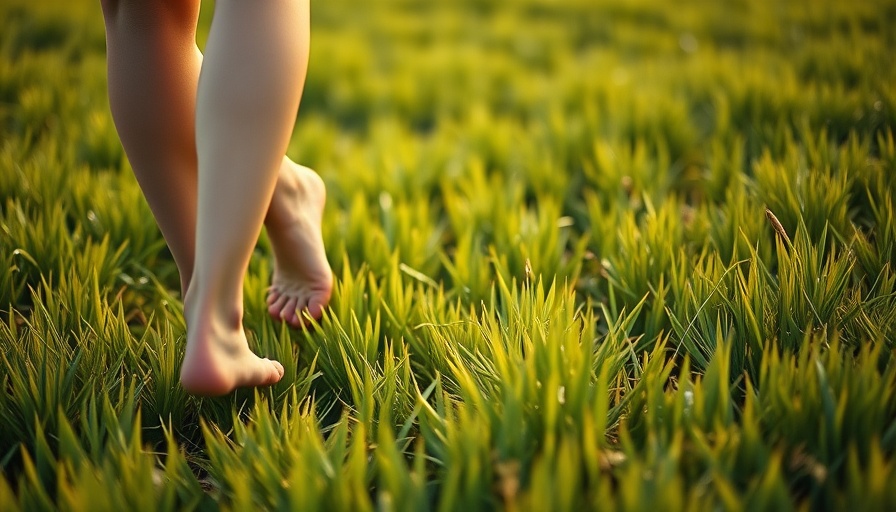
Exploring the Grounding Trend: What You Need to Know
Have you ever felt a wave of tranquility wash over you as your bare feet touch the grass or the beach? This intimate connection with nature might be more significant than you think. Grounding, often referred to as earthing, is the practice of making direct contact with the Earth’s surface. Historically, this was an instinctive behavior for our ancestors whose lives revolved around nature. In today’s world of concrete and technology, this innate connection has become largely forgotten.
What Science Says About Grounding
Scientific inquiries into grounding suggest potential health benefits, such as stress reduction and improved mood. However, conclusive evidence remains limited. Some proponents argue that grounding helps to balance the body’s electric charge, receptor to both awesome natural energies and modern electronic devices. They believe reconnecting with the Earth may foster physiological health, enhancing sleep quality, reducing pain, and even improving mental clarity.
The Role of Technology in Grounding
Ironically, while grounding is an ancient practice, much of today’s discussion is led by technology. Numerous devices, like grounding mats and sheets, are marketed to help users access the Earth's electrical energy conveniently from indoors. While these products are becoming popular, questions arise about their actual effectiveness. Are they lifestyle enhancers or just another health trend propagated by social media?
Grounding Products and Their Claims
Many companies purport that grounding products can enhance sleep, relieve chronic pain, and even boost immunity. Grounding sheets, for instance, are marketed to act as conductive interfaces, allowing the body to absorb the Earth’s energy while you rest. Consumers on social media platforms like TikTok are increasingly sharing their personal results and advocating for these products, leading to a growing interest.
Grounding and Mental Health: A Real Connection?
While subjective experiences shared online can be compelling, it’s essential to approach the mental health implications of grounding cautiously. Some studies suggest grounding may indeed lower stress and anxiety levels through biochemical pathways associated with inflammation and free radicals. However, further peer-reviewed research is needed to validate these findings. Individuals skeptical of grounding products might consider more established methods of stress reduction, such as mindfulness or physical activity.
The Emotional Appeal of Grounding
Grounding appeals to a profound and universal instinct that many share – the need to connect with nature. In our fast-paced lives, this connection can feel distant. Many individuals find that practices involving grounding help them reconnect with a sense of peace amidst life’s chaos. Sharing experiences through platforms like TikTok not only dramatizes these moments but also cultivates a community around shared mental wellness journeys.
Frequently Asked Questions About Grounding
Is grounding scientifically proven to improve sleep and wellness?
While anecdotal evidence abounds, scientific validation of grounding's benefits remains under rigorous study, so one should be cautious in expectations.
How can I practice grounding regularly?
Simple practices include walking barefoot on grass, sand, or soil, or incorporating grounding products into your daily routine.
Conclusion: The Personal Experience of Grounding
Whether you are curious about grounding to soothe your mind or wondering if it can truly enhance your wellness, listening to personal accounts may shed light on this trend. Align these reflections with current health practices and consider your unique health journey as you explore this connection with the Earth.
For those looking to improve both their physical and mental well-being, why not take the first step? Explore the vibrant world of health and wellness products that resonate with you. Consider attending local health events or engaging with community wellness initiatives that promote holistic approaches to living well.
 Add Row
Add Row  Add
Add 




 Add Row
Add Row  Add
Add 


Write A Comment